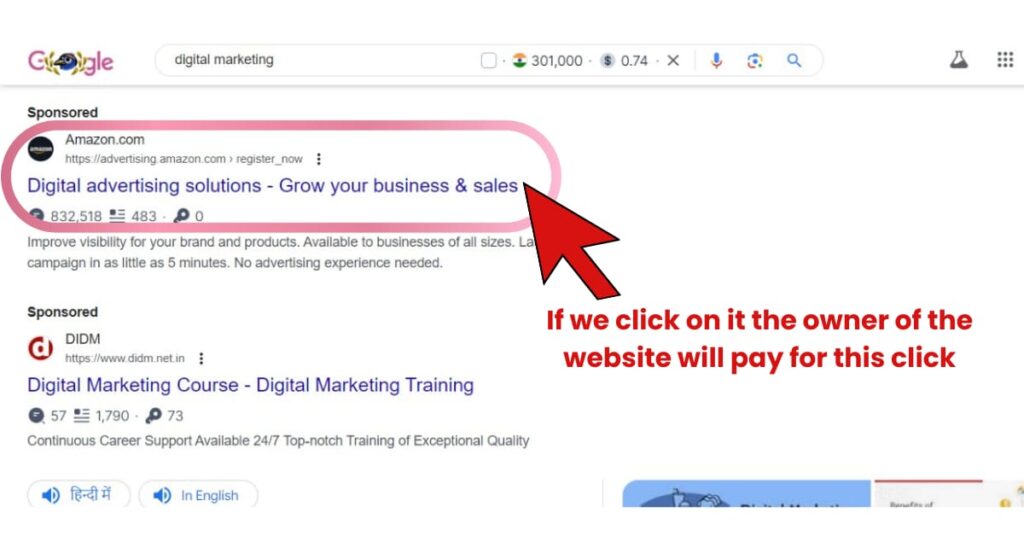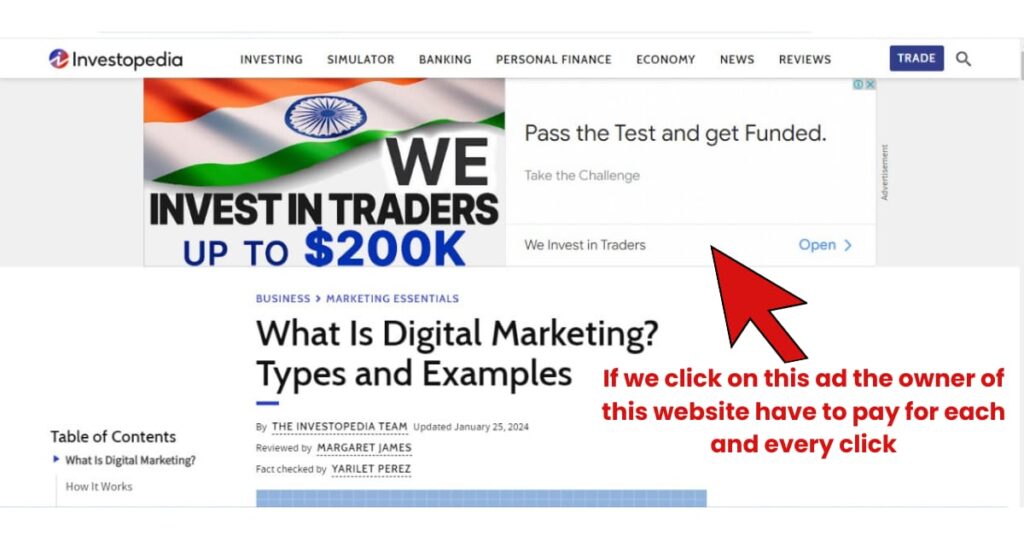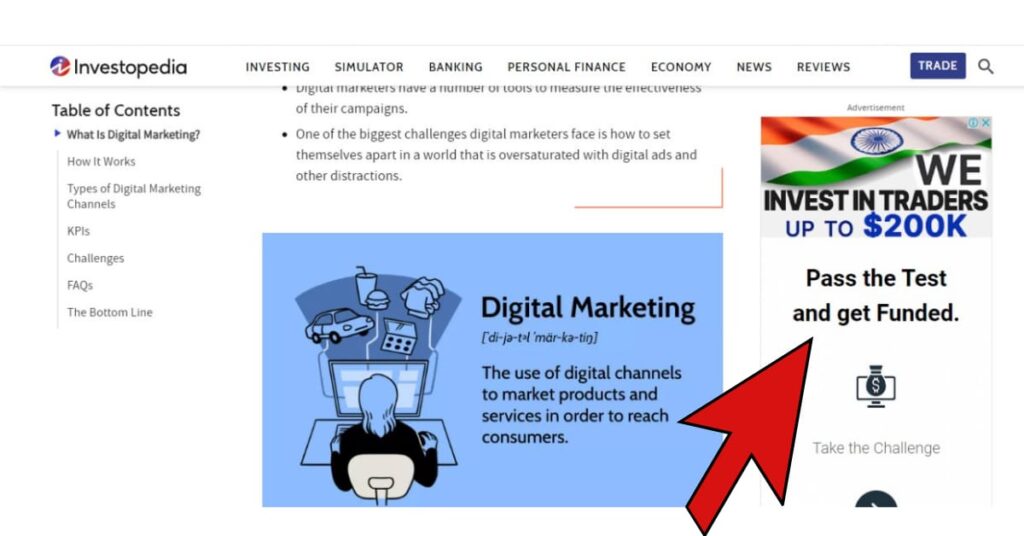In digital marketing, choosing the right advertising strategy [PPC vs CPC] is crucial for maximizing your return on investment (ROI) and achieving your business goals. You’ll come across two of the most popular terms: PPC (Pay-Per-Click) and CPC (Cost-Per-Click). These strategies may seem similar at first glance, but they have distinct characteristics that can make one more suitable for your needs than the other. So, which one works better for your ads? Let’s dive into the details to find out.
Advertisers using the pay-per-click (PPC) online marketing strategy incur costs each time one of their ads is clicked. Essentially, it’s a way to buy traffic to a website instead of trying to “earn” that traffic organically.

PPC campaigns often involve bidding on keywords that users might search for in search engines. When someone types in a keyword you’ve chosen, your ad can appear in the search results. You have to pay the search engine a small fee if they click on your advertisement. The beauty of PPC is that you only pay when someone clicks on your ad, hence the name “Pay-Per-Click.”

CPC, or Cost-Per-Click, is a term used to denote the amount you pay each time a person clicks on your ad. It’s the cost metric used in PPC campaigns.

The total cost of your clicks is divided by the total number of clicks to determine your CPC. For instance, your cost per click (CPC) would be $2 if you invested $100 in a campaign that got 50 clicks.
PPC offers great flexibility in terms of budget. You can decide how much you’re willing to spend per day, per month, or per click, making it easy to control costs and avoid overspending.
CPC allows for more predictable budgeting, as you know exactly how much each click will cost. This predictability can be beneficial for businesses that need to maintain strict control over their ad spend.
PPC campaigns can offer high returns if managed effectively. Because you only pay when someone clicks on your ad, there’s a clear path to calculating ROI. If your PPC ads lead to sales, the investment can be well worth it.
CPC is particularly effective when your goal is to optimize for conversions. Since you’re focused on paying for actual clicks, it’s easier to track and optimize the user journey from click to conversion.
PPC platforms, like Google Ads, offer a wide range of customization options. You can target specific demographics, set bidding strategies, and choose where and when your ads appear.
CPC gives you direct control over how much you’re willing to pay per click, allowing you to adjust bids according to the performance of your campaign.
PPC campaigns allow for precise audience targeting. You can target users based on their search behavior, location, age, and even interests, ensuring your ads reach the most relevant audience.
While CPC is more about the cost of individual clicks, it also allows for effective audience reach. The more competitive your bid, the more likely your ad is to appear in front of your target audience.
PPC is ideal for businesses that need to generate traffic quickly. It’s especially useful for time-sensitive campaigns, such as promotions or product launches, where immediate visibility is crucial.
Many businesses have seen tremendous success with PPC. For example, a small e-commerce store might use PPC to drive traffic to a new product page, resulting in a significant increase in sales within a short period.
CPC is better suited for campaigns focused on driving specific actions, such as sign-ups or purchases. It’s also a great option for businesses that want to maintain strict control over their ad spend.
A tech startup, for instance, could use CPC to promote its new app, paying only for clicks from users interested in downloading the app. This approach ensures that every dollar spent is used effectively.
For the best results, many businesses combine PPC and CPC strategies. By using PPC to generate broad visibility and CPC to fine-tune specific campaigns, you can achieve a balanced approach that maximizes both reach and efficiency.
A company might use PPC for a large-scale brand awareness campaign, then switch to a CPC model for a more targeted campaign aimed at converting those aware of the brand into customers.
PPC and CPC each have their strengths and are suited to different advertising goals. PPC is great for driving quick traffic and has flexible budgeting options, while CPC offers predictable costs and a focus on conversions.
In the end, the optimal decision is determined by your unique requirements and goals. Understanding the nuances of both strategies will allow you to choose the one that aligns best with your business goals or, better yet, combine both to get the most out of your advertising efforts.
What is the Key difference between PPC and CPC?
PPC refers to the overall model of paying per click, while CPC is the cost metric used within that model to measure how much each click costs.
Can I use both PPC and CPC in one campaign?
Yes, you can use both. PPC is the strategy, and CPC is the metric you monitor within that strategy.
Which strategy is more cost-effective?
It depends on your goals. PPC offers flexibility and fast results, while CPC allows for more controlled spending and is often used for conversion-focused campaigns.
How can I measure the success of my PPC or CPC campaign?
Success can be measured by analyzing metrics like ROI, conversion rates, and click-through rates (CTR).
What are the risks of using PPC and CPC?
PPC risks include overspending and low ROI if not managed properly. CPC risks include paying for clicks that don’t convert into sales or leads.

Hello, from adechoes.in, your one-stop shop for anything related to digital marketing. Here, we’re passionate about using smart content and useful strategies to support businesses in their online initiatives.
Check out our blog for helpful information on tools, strategies, and trends in digital marketing. Are you prepared to develop your digital strategy? Speak with us right now to find out how we might work together on your upcoming project.
© 2023 – All Rights Reserved • Blog By Tisha

Hello, from adechoes.in, your one-stop shop for anything related to digital marketing. Here, we’re passionate about using smart content and useful strategies to support businesses in their online initiatives.
Check out our blog for helpful information on tools, strategies, and trends in digital marketing. Are you prepared to develop your digital strategy? Speak with us right now to find out how we might work together on your upcoming project.
© 2023 – All Rights Reserved • Blog By Tisha

Hello, from adechoes.in, your one-stop shop for anything related to digital marketing. Here, we’re passionate about using smart content and useful strategies to support businesses in their online initiatives.
Check out our blog for helpful information on tools, strategies, and trends in digital marketing. Are you prepared to develop your digital strategy? Speak with us right now to find out how we might work together on your upcoming project.
© 2023 – All Rights Reserved • Blog By Tisha